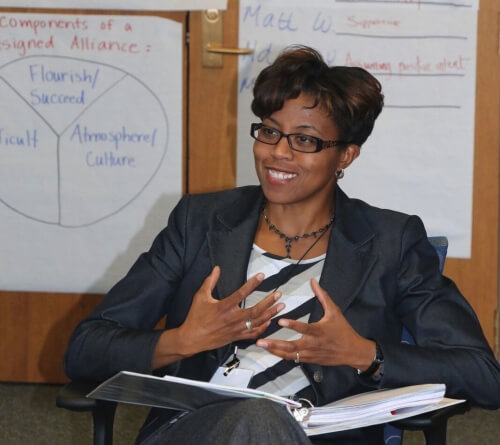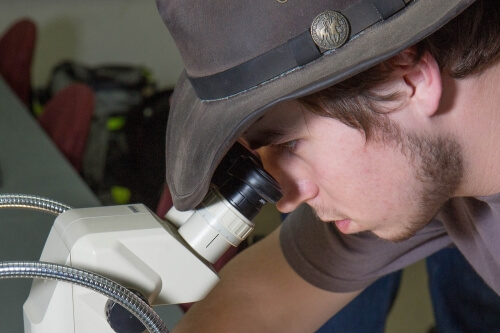UW-Madison noncredit programs cater to working professionals
Lifelong learners now have more options. Following last year’s launch of a website that highlights credit-bearing graduate programs for working professionals who want to continue their education, the University of Wisconsin–Madison has added dozens of noncredit certificate programs.
AdvanceYourCareer.wisc.edu now features 47 credit-bearing and 40 noncredit programs. All are designed to facilitate career growth, but the noncredit certificates require significantly less time commitment and are typically much more affordable.

Ndidi Yaucher participates in the Professional Life Coaching Certificate program. Division of Continuing Studies
That flexibility has been helpful for people like Ndidi Yaucher, who decided to pursue life coaching as a career after reading an article about the emerging field. The problem was that she already had a job, along with family responsibilities, so she needed a convenient way to train for her new vocation.
Yaucher found her answer in the nine-month Professional Life Coaching Certificate program, which combines face-to-face classes with convenient teleconferences.
“I like the blended classroom format, which provides flexibility,” Yaucher says. “This was particularly important to me given my busy work travel schedule.”
Like the life coaching program, the noncredit offerings on AdvanceYourCareer.wisc.edu teach marketable skills for those seeking to advance in their current fields or change jobs altogether. Registration for noncredit certificates is open to everyone, with no need to apply for university admission.
“By opening the university’s doors to adults in need of career training, the noncredit programs showcased on AdvanceYourCareer.wisc.edu address Wisconsin’s workforce needs,” says Sarah Mangelsdorf, UW–Madison’s provost and vice chancellor for academic affairs. “These programs are available online, on evenings and weekends, and in hybrid formats so working professionals can fit them into their busy schedules.”
For example, UW–Madison’s noncredit business programs cater to people who want to learn advanced skills without studying for a master’s degree. They include the Foundations of Business Management Certificate, which teaches management techniques in an accelerated format. Students participate in a one-week Transition to Manager Boot Camp, follow up with a two-day course on managing teams, and finish the program by choosing a two- or three-day elective on conflict management, negotiations or another essential topic. As with many of UW–Madison’s noncredit programs, the courses in the Foundations of Business Management Certificate are scheduled several times a year so students can easily complete the training.
In the field of engineering, noncredit programs include a Disaster Management Diploma, a Laser Welding Certificate, and a Maintenance Management Certificate. Social workers can take the Substance Abuse Certificate Program to address addiction issues, and health professionals can gain proficiency in helping older adults in the Geriatric Mental Health Care Management Program. Those interested in agricultural careers can register for the 15-week Farm & Industry Short Course.
Several of UW–Madison’s noncredit programs are available completely online, allowing students to learn at their own pace from any location. These include the Business Spanish Certificate Program and the Professional Certificate in Online Education.
“By opening the university’s doors to adults in need of career training, the noncredit programs showcased on AdvanceYourCareer.wisc.edu address Wisconsin’s workforce needs.”
Sarah Mangelsdorf
Each of the noncredit programs provides convenience without sacrificing quality.
“Adults who register for these programs benefit from UW–Madison expertise,” says Jeffrey S. Russell, dean of the Division of Continuing Studies and vice provost for lifelong learning. “Like their counterparts in the credit-bearing degree and certificate programs, they will have access to experienced instructors and innovative courses, along with joining the extensive Badger alumni network.”
In the Professional Life Coaching Certificate program, Yaucher found not only a new career path, but also personal fulfillment.
“I enjoy the fact that the program incorporates different learning styles, with a blend of lectures, team and group discussions, practice coaching sessions, engagement and opportunities for constructive feedback,” Yaucher says. “It provides an environment to learn, grow, and stretch oneself.”

